Stewart Geddes is a counsellor and psychotherapist, based in Dublin. He has been practicing for five years, specialising in anxiety, and works mainly with young professionals who struggle with anxious thoughts and feelings about themselves, their professional lives and their ability to cope and progress. Previously, he worked in the corporate world for two decades.
The Professional Worrier is his first book.
Copyright 2019 Stewart Geddes
The right of Stewart Geddes to be identified as the Author of the Work has been asserted by him in accordance with the Copyright, Designs and Patents Act 1988.
First published in Ireland in 2019 by HACHETTE BOOKS IRELAND
All rights reserved. No part of this publication may be reproduced, stored in a retrieval system, or transmitted, in any form or by any means without the prior written permission of the publisher, nor be otherwise circulated in any form of binding or cover other than that in which it is published and without a similar condition being imposed on the subsequent purchaser.
Illustrations from Mastery: The Keys to Success and Long-term Fulfilment by George Leonard, copyright 1991 by George Leonard. Used by permission of Dutton, an imprint of Penguin Publishing Group, a division of Penguin Random House LLC.
All rights reserved. Reprinted by permission of SLL/Sterling Lord Literistic, Inc.
Copyright by George Leonard Family Trust.
Cataloguing in Publication Data is available from the British Library
ISBN 978 1 4736 9031 8
Hachette Books Ireland
8 Castlecourt Centre
Castleknock
Dublin 15,
Ireland
A division of Hachette UK Ltd
Carmelite House,
50 Victoria Embankment,
EC4Y 0DZ
www.hachettebooksireland.ie
I have studied anxiety for the past ten years, but I have lived with it for the past forty.
I was a shy kid who grew into a socially anxious teenager. Without exception, when I was faced with fears, I shrank away and sought comfort. To those who knew me, I always seemed happy. As with all human beings, though, there was a lot more happening for me under the surface than I allowed others to see. I was a chronic worrier with inadequate coping skills and a very poor self-image, and I would dip in and out of low mood and an inexplicable sadness from time to time without warning. It took a long time as I didnt have the tools and insights I now have but, gradually, I began to understand myself better and get a handle on my emotions and what was really going on for me. I have had to make my peace with what I once saw as the years I lost to anxiety, as if I was to dwell too long on my twenties, it would consume me. I still wish, however, that I could talk to that lost young man, because I know now that anxiety need not have been his master.
Ive now figured out what works for me, and this, along with studying some of the great names in the field and working for the past six years with clients struggling with their own anxiety, has given me an understanding about what strategies and approaches can be effective for a lot of people when it comes to managing their mental health. This is what I will talk about in the coming pages.
Everyone is different, and everyones anxiety plays out in very diverse ways. As a therapist, the last thing I want to do is to presume I know someone elses story or what they need just because I see parallels with my own experiences but there are many broad similarities in the process that I can use.
So many of the people who come to see me do not know why they feel the way they do, but they know they want something to change. If we struggle with anxiety, we need to become more aware of what is going on for us, we need to gain knowledge about how our minds and bodies work, and have at our disposal some key practical tools to deal with our thoughts, push through fears and accept that this is probably something we will always have to keep on top of going forward. Using elements of Cognitive Behavioural Therapy (CBT), Acceptance and Commitment Therapy (ACT) and some mindfulness techniques, coupled with an understanding of how anxiety works, we can begin to see our minds and bodies as allies and not enemies. They are not looking to harm us, but to protect us. We just need to learn how to work with them, so that they can help us rather than hold us back.
The Professional Worrier is for those who struggle with worry and anxiety to such a degree that it interferes with relationships, studies, careers or a general ability to feel contentment when things appear to be going well. However, this book is not a replacement for therapy, or a comprehensive manual for those who are dealing with Generalised Anxiety Disorder (GAD) or Social Anxiety Disorder.
This book provides an insight into how anxiety and worry work, and how they play out in our social situations, careers and close relationships. It also outlines some practical tips, techniques and strategies to help you manage these issues and situations. I have seen many people including clients coming through my practice who just lacked some relevant knowledge and the coping mechanisms to make life so much easier for themselves.
What is normal anyway?
Before we begin, I think its important to get some widely held misconceptions out of the way, as these can hold us back in any type of personal development work.
The first of these is that, when it comes to how we experience and interact with the rest of the world, and indeed with ourselves, there is such thing as normal.
Before I sought help to tackle my own anxiety, I held an all too common belief that I was somehow different to other people, both those I knew well and those I encountered in the world in general. Because I didnt have access to other peoples minds, I believed that my thoughts were very different to theirs; that my thinking was bizarre or odd or in some way not normal. I assumed that my tendency towards negativity, my worrisome thoughts and constant mental noise were things others didnt have to contend with. Other people were normal I was not.
In my work as a therapist, normal is a theme that comes up again and again for my clients. Nobody is ever able to put their finger on exactly what normal looks like or how it is acted out, but they sure as hell know that they arent it.
Even though what constitutes normal is never actually fleshed out, and we dont know exactly what it is, we somehow know we dont match up.
This sense of being in some way different and so less acceptable has an effect on us. We cannot believe something about ourselves as fundamental as this and not act from it. If we believe that the world is stacked against us, that everybody else fits in or has things more easy or can get along better, we may feel that we will always be on the outside looking in.
 Is it normal to worry all the time?
Is it normal to worry all the time?
 Is it normal to find social interactions difficult?
Is it normal to find social interactions difficult?
 Is it normal not to know why we are feeling the way we are feeling?
Is it normal not to know why we are feeling the way we are feeling?
 Is it normal to find relationships difficult or to be afraid of conflict or to seek comfort when we are feeling anxious?
Is it normal to find relationships difficult or to be afraid of conflict or to seek comfort when we are feeling anxious?
If we are prone to negative thinking, then normal is probably made up of all the qualities that we do not possess or, more likely, that we believe we do not possess. Because we have access to our own heads, we know some of the crazy things we think. We know the things weve done that were not proud of, the hurt we have caused the people we love and the things we do on a daily basis that we wish we didnt.
Next page

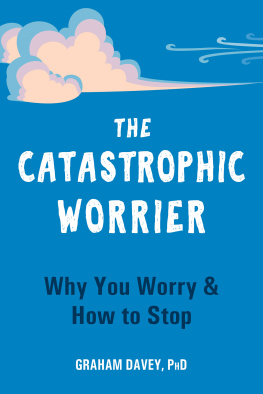
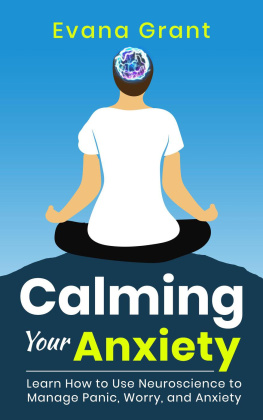
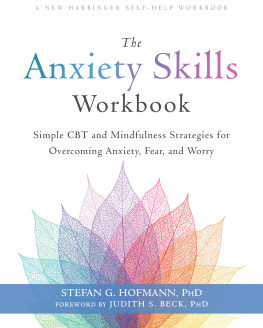
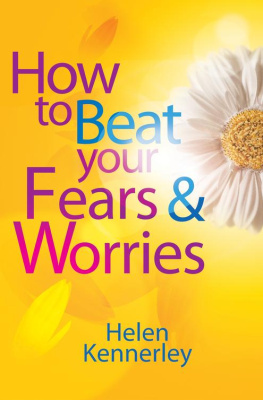

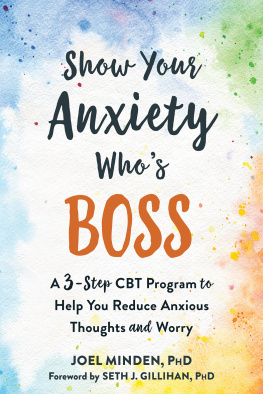
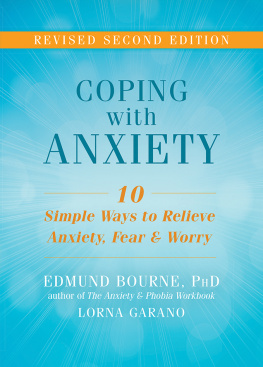
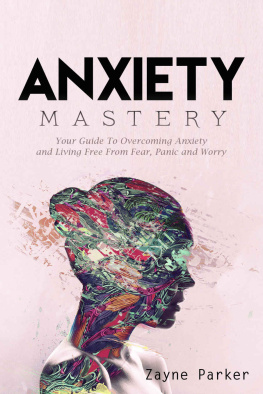
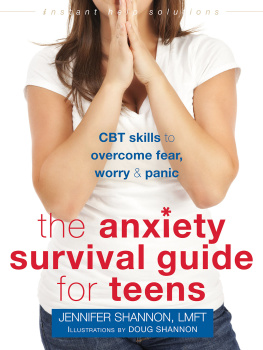
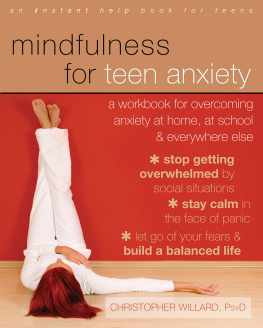

 Is it normal to worry all the time?
Is it normal to worry all the time?